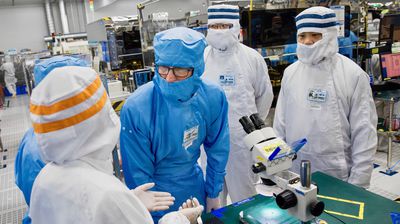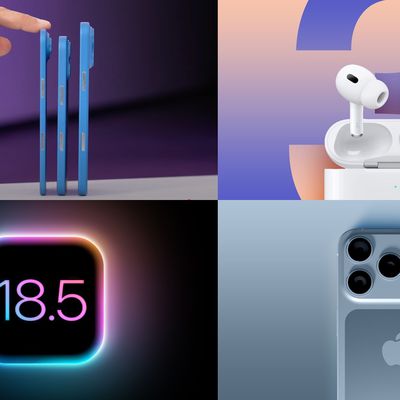Apple says it has found no evidence of alleged forced labor at one of its key Chinese suppliers, after the U.S. government blacklisted O-film as part of its continuing crackdown on Chinese tech companies.

Camera and touch module supplier O-film Group was one of 11 Chinese companies added to the U.S. Commerce Department's Entity List on Monday over alleged human rights abuses involving China's Uighur Muslim minority. Activists have also launched a campaign accusing firms of "bolstering and benefiting" from exploitation of the minority group.
Reports by U.S. Congress and the Australian Strategic Policy Institute (ASPI), among others, have found that thousands of Uighers have been transferred to work in factories across China under conditions that strongly suggest forced labor. The ASPI has inked the factories to over 80 brands, including Apple, Nike, and Gap.
However, Apple told BBC News on Thursday that it had investigated the claims against O-film and had not discovered anything untoward, despite conducting several surprise audits at O-film facilities.
"We have found no evidence of any forced labour on Apple production lines and we plan to continue monitoring," the firm said.
O-film has been part of Apple's supply chain since 2017, first for iPads and later for iPhones. O-Film currently supplies front-end camera modules and dual-camera modules for Apple's upcoming "iPhone 12" lineup.
The manufacturer has successfully competed for Apple's business by showing that it can meet the company's high quality standards, fending off rival camera module suppliers including Foxconn-owned Sharp of Japan and LG Innotek.
In December 2017, Apple CEO Tim Cook visited one of O-film's factories and praised the tech expertise and work culture, according to a press release on O-film's official website.
Nikkei Asian Review notes that Apple's 2019 suppliers list shows that three out of the four O-film facilities that supply Apple are in Nanchang, where the blacklisted subsidiary is located, although it's not clear if the subsidiary operates any of the facilities that directly supply Apple.
Update: According to DigiTimes' sources in the supply chain, O-film's shipments for Apple will not be affected by the blacklisting in the short term. The sources said O-film's Nanchang site supplies touch control solutions for Android handsets and has become an independent business entity since 2019, while O-film's camera modules for iPhones are mainly assembled at its main production base in China's Shenzhen.
Note: Due to the political or social nature of the discussion regarding this topic, the discussion thread is located in our Political News forum. All forum members and site visitors are welcome to read and follow the thread, but posting is limited to forum members with at least 100 posts.






















